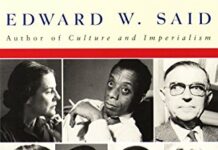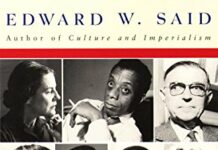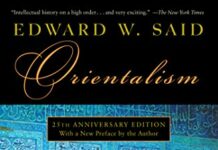
Ebook Info
- Published: 1996
- Number of pages: 188 pages
- Format: PDF
- File Size: 2.30 MB
- Authors: Edward W. Said
Description
In works such as Culture and Imperialism, Said has compelled us to question our culture’s most privileged myths. Now with this impassioned and incisive book, our foremost Palestinian-American intellectual challenges the official version of the Middle East “peace process.” “He challenges and stimulates our thinking in every area.”– Washington Post Book World.
User’s Reviews
Editorial Reviews: From Publishers Weekly This is not an easy book. It’s not that Said’s ideas are difficult to grasp, but rather, as Said says in his introduction, “this is the first of my books to have been written from start to finish with an Arab audience in mind.” Perhaps even more than is usual for Said, author of The Politics of Dispossession and a member of the Palestine National Council from 1979-91, the book has a decidedly partisan spin as when he is shocked that “a Palestinian negotiator once believed that Palestinians were a threat to the settlers!” Still, beyond the rhetoric, readers will find very valid points aimed at both fellow Arabs and the international community. He chides the Arab world for nondemocratic governments and for negotiating without adequate understanding of America and Israel and without knowing their own resources-people, land and water. And he has very real concerns following the Oslo agreement: its failure to address all Palestinians-those in Israel, in the Occupied Territories and the vast diaspora-and the ghettoization of West Bank towns by the $600-million road system announced (post-Oslo) for the Occupied Territories. But generally, Said is an idealist, calling for absolute parity in negotiations between Palestinians and Israelis. Pragmatically, however, the PLO is negotiating from a position of relative weakness that was made more acute by its disastrous position during the Gulf War, which left it cash-strapped; public feeling in Israel means that a strong Palestinian presence in Jerusalem is unlikely; and, however he tries to downplay it, terrorism is a major factor in Israeli and international attitudes toward Palestinians. Copyright 1995 Reed Business Information, Inc. From Library Journal Said, a Palestinian intellectual with impeccable credentials that carry him well within both the halls of American academia and Palestinian political forums, despairs over the failure of his community’s leadership to achieve a solid set of goals in the present negotiating process. Most of the material presented here has appeared elsewhere in Arabic-language papers or in one of Said’s many publications, but all was written originally for an Arab audience. While the theme may appear to be redundant to many?the Palestinians caved in to U.S. pressure and obstinate Israeli demands without exploiting their advantage of moral position and sound political objectives?the thought processes and manner of deliberation exhibited by Said require attention by everyone interested in the topic. Said’s sentiment is echoed by other Palestinians such as Mohamed Rabie (U.S.-PLO Dialogue, Univ. Pr. of Florida, 1995). Recommended for students of diplomacy and in particular the current Palestinian-Israeli peace process.?Sanford R. Silverburg, Catawba Coll., Salisbury, N.C.Copyright 1995 Reed Business Information, Inc. From Booklist The Oslo Agreement, setting terms for a new relationship between Israelis and Palestinians, has drawn such wide mainstream support that few Americans realize many Palestinians consider this new relationship far short of self-determination. Columbia University professor Said, a relatively visible dissenter from conventional wisdom about the peace process, expands a similarly titled volume published in Cairo in late 1994, gathering some 20 commentaries from Al-Hayat, an Arab-language daily, from September 1993 through April 1995. (Many of Said’s pieces also ran in Cairo’s Al-Ahram Weekly; a half dozen were picked up by such publications as The Nation, London Review of Books, and the Washington Post.) A longtime member (1977^-91) of the Palestine National Council, Said challenges the usual interpretation of Oslo, arguing that “Arafat’s flawed linguistic and political understanding do not permit him to perceive the difference between limited autonomy, which is what he got, and national liberation, which he gave up.” Although all hope that developments in the Mideast are moving Israelis and Palestinians toward reconciliation and peace, Said’s objections should not be ignored. Mary Carroll From the Inside Flap h as Culture and Imperialism, Said has compelled us to question our culture’s most privileged myths. Now with this impassioned and incisive book, our foremost Palestinian-American intellectual challenges the official version of the Middle East “peace process.” “He challenges and stimulates our thinking in every area.”– Washington Post Book World. From the Back Cover Ever since Yasir Arafat and Yitzhak Rabin shook hands on the White House lawn, Israel and the Palestinian people have been engaged in what commentators persist in calling “the peace process”. Yet Israel remains racked by violence and continuing land seizures, and Palestinians are more demoralized than ever before. Now in this probing and impassioned book, one of our foremost Palestinian-American intellectuals explains why the much-vaunted process has yet to produce peace – and is unlikely to as presently constituted. Whether Edward Said is addressing the fatal flaws in the PLO’s bargain, denouncing fundamentalists on both sides of the religious divide, or calling our attention to the distortions in official coverage of the Arab world, he offers insights beyond the conventional wisdom and a sympathy that extends to both Israelis and Palestinians. He does so with an incisiveness, clarity, and fairness that make Peace and Its Discontents essential reading for anyone who cares about the future of the Middle East. About the Author Edward W. Said was born in 1935 in Jerusalem, raised in Jerusalem and Cairo, and educated in the United States, where he attended Princeton (B.A. 1957) and Harvard (M.A. 1960; Ph.D. 1964). In 1963, he began teaching at Columbia University, where he was University Professor of English and Comparative Literature. He is the author of twenty-two books which have been translated into 35 languages, including Orientalism (1978); The Question of Palestine (1979); Covering Islam (1980); Culture and Imperialism (1993); Peace and Its Discontents (1996); and Out of Place: A Memoir (1999). Besides his academic work, he wrote a twice-monthly column for Al-Hayat and Al-Ahram; was a regular contributor to newspapers in Europe, Asia, and the Middle East; and was the music critic for The Nation. He died in 2003 in New York City. Read more
Reviews from Amazon users which were colected at the time this book was published on the website:
⭐Thanks to Amazon, we can read Said’s Peace and Its Discontents, from which we get a compel-lingly persuasive view of what the “Arab-Israeli conflict” is really all about. Some reviewers have tried, in a way that seems sneaky to me, to shunt the author’s intention into a diatribe against Yassir Arafat. This is not Said’s major purport, which as usual is: a complaint about Israel’s unfair treatment of his fellow Palestinians. It is often said that the abused child becomes the abuser. Thus the Israeli subjugation of and aggression toward the Palestinians seems tantamount to genocide against the people that have lived peaceably in this area for so many centuries. I feel terrible that my own country, the USA, has given the Israelis not just carte blanche but great material assistance to commit their offenses.”Skeptic Curmudgeon”
⭐great book
⭐The peace process that emerged from negotiations between Yasir Arafat and the Israelis in Oslo in 1993, and later signed in Washington, received an astonishing amount of media hype at the time and for many years after. Not a single cliché was left on the shelf, and no panegyric was deemed to extravagant to those who praised the Oslo accords to the skies. One exception was the late Edward Said who was highly critical from the outset. But then he, unlike the myriads of bumptious reporters and cliché-mongering commentators who ritually slobbered over it, had actually read the Oslo accords. It was clear to Said, and other Palestinians, that the accords were one sided, and essentially “a cold and ungenerous peace” dictated in Israeli interests. A year later as the Palestinians economy, territorial integrity and security had visibly deteriorated Said had this to say:”In what world do Yasir Arafat and Abu Mazen live when all last year [1993-94] they kept proclaiming their trust and confidence in Israel, an Israel that has dispossessed our people, and continues to this minute to confiscate land, to increase settlements, kill and incarcerate thousands of Palestinians?”In this collection of articles written throughout the period of 1993-95, Edward Said comments on the “peace” process as it developed, and the implications for the Palestinian and Israeli peoples. His views were criticised by those who supported Oslo as destructively negative, but it is hard not to consider his comments, such as the following, as essentially correct: “There is no vision in the Israeli leadership, no sense that in the long run problems solved at Palestinian expense now will simply come back to plague both peoples in the future.”In addition to the central focus on the “peace” process Said finds space for a number of short biographical pieces, such as the one he writes about the remarkable Sara Roy (see
⭐), an American Jew whose family had suffered losses during the Nazi Holocaust, though this did not stop her from having the breadth of humanity to write eloquently on the form of apartheid and de-development that the Israelis subjected Gaza too. A lesser known figure is also remembered, Hanna Mikhail, a Palestinian Christian of Quaker extraction, who left behind a successful academic career in the United States to play a principled and exemplary role in the Palestinian Liberation Movement, and died in 1976. One of the highlights is Saids essay “Decolonising the Mind” in which he underlines the limitations of those rejectionists and sycophants of Israel and the West amongst the Arabs, and calls on the Arab world to engage in a comprehensive, nuanced and critical study of Israel and the West.Apparent throughout is the growing contempt that Said feels for how Arafat and his cronies conducted themselves. His thesis is that Arafat, fresh from his disastrous Gulf War diplomacy and short on funds from the Gulf States, undermined the Palestinian negotiators from the occupied territories by conducting secret talks with the Israelis in Oslo, essentially to save his own position. The accord Arafat and Abu Mazen (now his successor) negotiated was essentially a declaration of surrender as far as Palestinian interests were concerned. Everything for Israel, and at best vague statements for the Palestinians on crucial issues such as illegal settlements, refugees, economic development, institutions, and territory – the only concrete “reward” was Jericho and the un-settled parts of the Gaza strip that Yitzak “break their bones” Rabin (known as “Soldier of Peace” in respectable circles) had once hoped would sink into the sea. Functionally, vis-à-vis the Israelis Arafat was acting in the manner of a collaborator, and so it went on until the utterly paltry Israeli offer in the final settlement negotiations when he had no choice but to finally face reality, and refused to sign the final surrender.If you want to avoid mouthing clichés about the 1990’s peace process, and wish to have some crucial background for an understanding of current Israeli-Palestinian relations then this book is enormously important. Edward Saids critical intelligence, principled outlook and, in the best sense of the word, his critical voice are always worth listening to, and this book is no exception. It is a great crime that the Palestinian and Israeli leaderships did not take on board his calls for a just peace of equals.
⭐This collection of Said’s essays provide a form of running commentary of what he deems as a doomed peace process immediately following the PLO-Israel agreement on September 13, 1993. Most people will remember this event by the picture of Yitzhak Rabin and Yasir Arafat shaking hands on the White House lawn with President Clinton’s arms on their shoulders, the sign that the two sides of the Palestine-Israel conflict were making progress. But to Edward Said and many supporters of a free Palestine, this conclusion of the Oslo Declarations meant the collapse of years of hard work. Peace and its Discontents is an effort by Said to encourage and garner support for the Palestinian cause. His writing is both passionate and well supported with specific examples. He accomplishes his aim to educate readers and stir their emotions in support of the Palestinian cause.Peace and its Discontents is Edward Said’s first book written for an Arab audience. It was first written in Arabic, but the English language version has two functions aiding Said’s cause. One, it allows Said to reach the Palestinians and Arabs who may not have access to the Arabic version but could still play important roles in the process. Palestinians have immigrated to Europe and the United States, and have become influential members of their communities; their efforts could affect the decisions being made in the Middle East. Two, it projects his message to the West; perhaps most importantly to the United States because of its integral role in the Palestine-Israel conflict.With this audience in mind, Said’s objective is simple: to educate his readers on his view of the issues. Said’s position becomes evident throughout the book as he critiques the Palestinian Liberation Organization and particularly Yasir Arafat. He wants Arafat and the rest of the PLO leadership to step down. Said has had enough of the PLO’s decisions and their being pushed around by Israel and the United States. “Most Palestinians are firmly convince, I think, that the present PLO leadership, as well as its creatures in the Occupied Territories and elsewhere, should resign, but then again they keep timorously asking, `What is the alternative?'” (45). Said was a member of the PLO for a time, and this inside knowledge provides some of his evidence against Arafat.Said makes the point that while the PLO was partly to blame for the conditions Palestinians were in, the situation the PLO was in was also difficult. Israel had done a magnificent job of making it practically impossible for Palestinians to change assert their will.While Said did consider Yasir Arafat to be passed his prime and a hindrance to the Palestinian effort, he was respectful of the fact that Arafat did help in the past. It is unclear what part of Arafat’s past he approved of, whether it was the terrorist and violent part or the negotiating aspect. In either case, Said saw Arafat’s actions in the early 1990s as counter-productive and provides examples to show that Arafat and the leaders of the PLO were disorganized and unclear of how the political game was played.While Said was very thorough in support of his arguments, he was biased towards the PLO. Said quit the PLO after deciding that he couldn’t work with a group if he didn’t agree with their tactics. While Said was open about his bias towards the PLO, it would have been more helpful for the reader to have more information about other groups such as the Islamic Jihad or Hamas. One of the problems with the Palestinian efforts is that there is no official Palestinian government. While this can be blamed on Israel for intentionally quartering off Palestinians in Israel and forcing them to accept Israeli decisions either through negotiations or sheer might, the Palestinians should be able to agree on a leader or an ideology. As it is, and as Said describes it, the only Palestinian objective is to repel Israel from the Occupied Territories. Said seems to expect that once Palestinian land is regained, a government can be formed to oversee it. Looking at past independence movements, however, a government has come first. With one voice, the Palestinians could negotiate with Israel and look for allies in other countries around the world. Currently, and when Said was writing, individual groups like the PLO, are fighting amongst themselves for authority over Palestine, and then fighting for Palestinian rights. This is only weakening the position of the groups, and dividing Palestinians.Another problem with the multitude of voices claiming to represent Palestine is that negotiating is practically impossible. For example, Israel dealt with the PLO in the 1990s because it seemed to be the most prevalent group, and was less terrorism-oriented than Hamas for example. So, while Israel and other countries painstakingly hammer out agreements with the PLO, they can never be sure if the Palestinians will accept the agreements or will simply say that Arafat didn’t fulfill their expectations as a leader, and will turn to someone else. This frustrates the Israeli side because they can never be sure if their efforts are in vain. The Israelis are also taking advantage of this situation. Since there are many voices for the many Palestinians, Israel can simply chose the easiest target and work to negotiate peace with that group. For example, since Israel and the US could lean on Arafat and make him commit to a proposal, they did. The countries are just playing the politics game, and the shrewdest will inevitably win.Said’s essays, while very thorough on the PLO and Arafat, don’t cover the difficult issues associated with the multitude of Palestinian interest groups in enough detail. His aim was specific, to express his views on the Oslo Declarations and show their impact on the Palestinian position in the Palestine-Israel conflict, and then to show how Yasir Arafat and the PLO contributed to this setback. He achieved this, and through his urgent tone, was able to sway his readers’ emotions and to make them consider the Palestinian side of the issue deeply.
Keywords
Free Download Peace And Its Discontents: Essays on Palestine in the Middle East Peace Process in PDF format
Peace And Its Discontents: Essays on Palestine in the Middle East Peace Process PDF Free Download
Download Peace And Its Discontents: Essays on Palestine in the Middle East Peace Process 1996 PDF Free
Peace And Its Discontents: Essays on Palestine in the Middle East Peace Process 1996 PDF Free Download
Download Peace And Its Discontents: Essays on Palestine in the Middle East Peace Process PDF
Free Download Ebook Peace And Its Discontents: Essays on Palestine in the Middle East Peace Process




